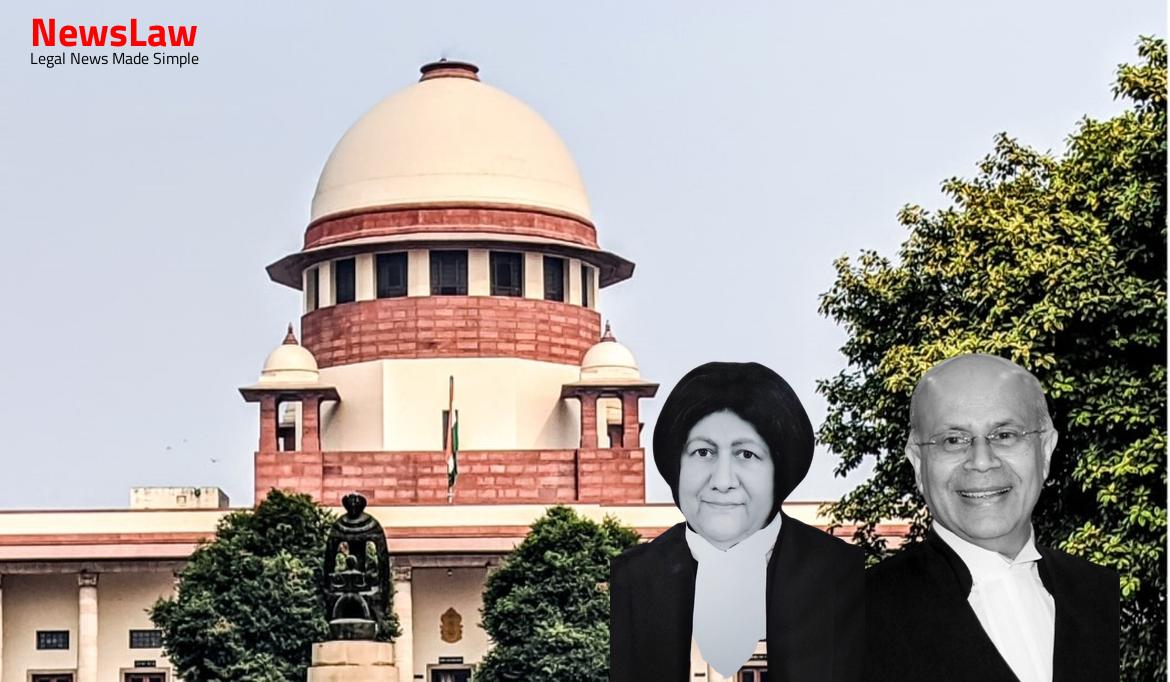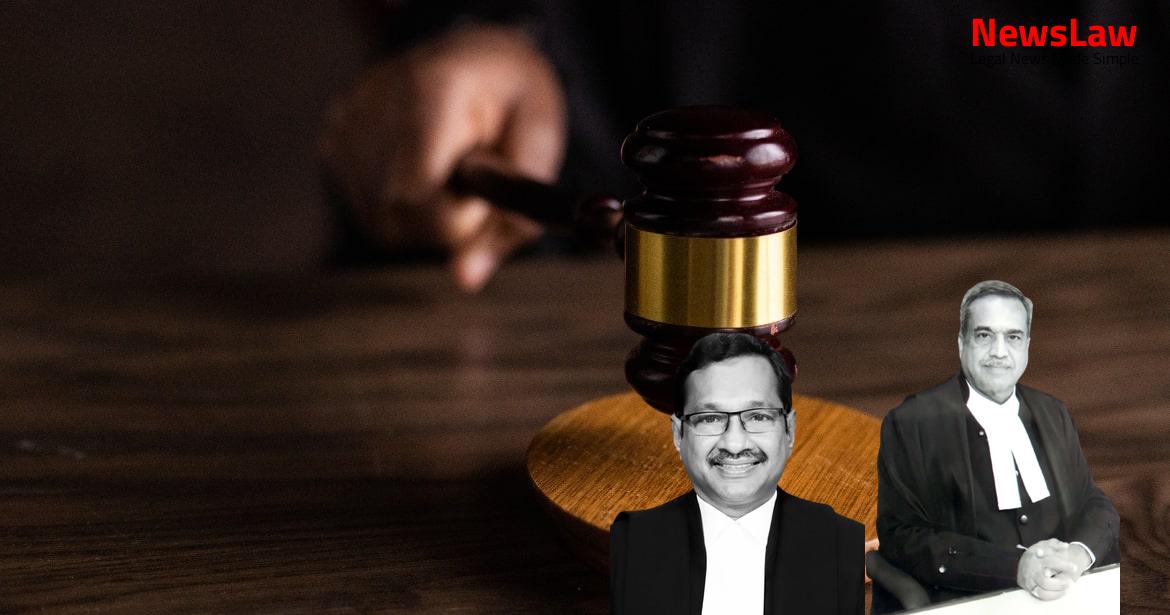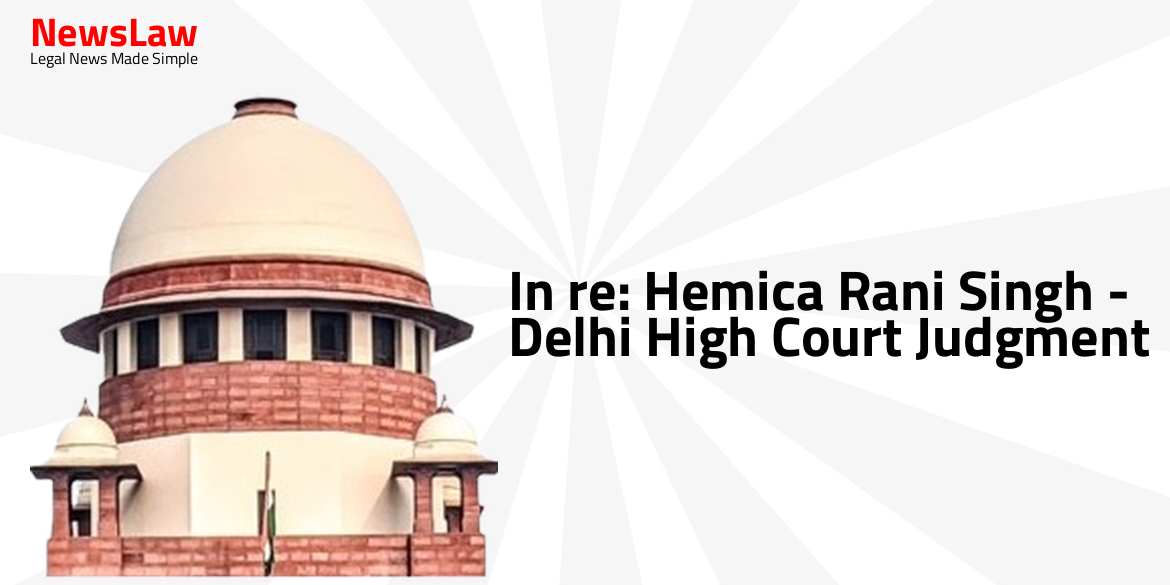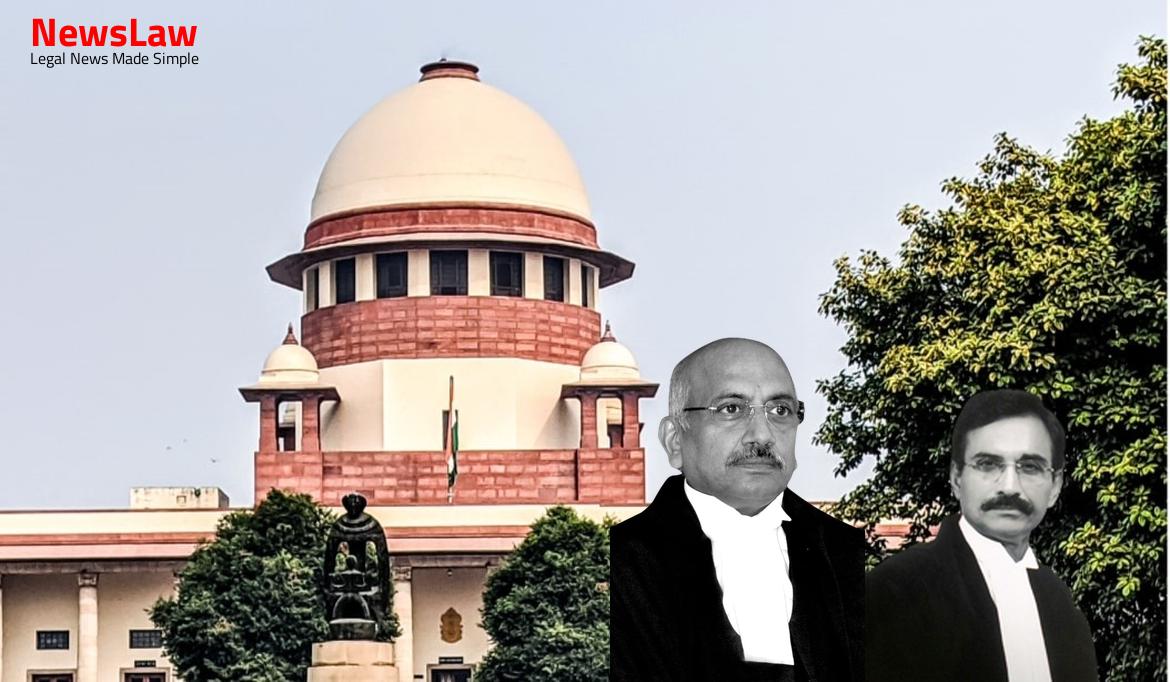Explore the intricate legal analysis by the Court on the interpretation of Section 21AA of the Wealth Tax Act in a recent case. The case delves into the definition of ‘association of persons’ and the application of the Section to entities with indeterminate member shares. Discover the court’s insights and rulings on the matter, shedding light on important legal principles to consider in taxation cases.
Facts
- The assessing officer concluded that the rights of the members of Bangalore Club are not restricted only to user or possession, but definitely as persons to whom the assets of the Club belong.
- The assessing officer cited Section 167A of the Income Tax Act, 1961 and Rule 35 of the Club Rules to argue that the Club is liable to be taxed under the Wealth Tax Act due to the uncertain and variable nature of the number of members and date of dissolution.
- The CIT (Appeals) dismissed the appeal against the assessing officer’s order in a cryptic order dated 25 October, 2000.
- The primary question for determination in these appeals is whether Bangalore Club is liable to pay wealth tax under the Wealth Tax Act.
- The Income Tax Appellate Tribunal, in a detailed order dated 7 May, 2002, described the Objects of Bangalore Club as focused on providing social, cultural, sporting, recreational, and fellowship facilities to its members.
- The order of assessment dated 3 March, 2000 mentioned that Bangalore Club is not registered as a society, trust, or company.
- The assessment years 1981-82 and 1984-85 up to 1990-91 were highlighted, with an unpaid amount remaining till date.
- In 1899, Lt. W.L.S. Churchill was listed as a defaulter of Bangalore Club for an unpaid bill of Rs.13.
- The mundane existence of Bangalore Club is depicted, with tax collection being the only notable event.
Also Read: Legal Analysis on Physical Ability in Rape Case
Arguments
- Association of persons in the context of taxing statute refers to individuals banding together with the common object of creating income and making a profit.
- Shri Vikramjit Banerjee argued that Rule 35 of the Club Rules and Section 21AA(2) support the application of the Section to the Bangalore Club in case of dissolution.
- Shri Nikhil Nayyar highlighted the object of Section 21AA of the Wealth Tax Act and discussed the provisions of the Section during the arguments.
Also Read: Analysis of Transfer of Winding Up Proceedings to NCLT
Analysis
- The counsel argued that the judgment of the High Court correctly followed the Chikmagalur Club’s case, which relied on the Ellis Bridge Gymkhana case.
- The Assessing Officer’s finding that the shares of a fluctuating body of members would be indeterminate was considered correct.
- It was highlighted that an association of persons must involve two or more people joining for a common purpose or action to produce income.
- It was clarified that the shares of the members in the club were determinate based on Rule 35, making Section 21AA inapplicable.
- The Club was recognized as a social club not formed for profit-making, thus not liable to income tax.
- A CBDT Circular was referred to for understanding the provision of Sections 167A in the Income Tax Act.
- The High Court’s decision was based on the CWT v. Club case, leading to a favorable ruling for the revenue department.
- The Appellate Tribunal set aside the orders of the Assessing Officer and the CIT (Appeals) based on Rule 35.
- The argument was made that individual shares of members need to be indeterminate for Section 21AA to be applicable.
- It was noted that the law regarding associations of persons predating April 1, 2002, would apply as per previous court judgments.
- Any resolution purporting to alter, amend, or modify the objects of the Club requires a two-thirds majority of Members present and voting
- Rule 35 of the Club Rules outlines the appointment of liquidators and the conduct of liquidation in accordance with relevant laws
- The Club is authorized to enter into affiliation and reciprocal arrangements with other Clubs
- The Club is empowered to undertake acts and things conducive to its objects
- Section 21-AA of the Wealth Tax Act addresses assessment in cases where shares of association members in assets are indeterminate
- The introduction of Section 21-AA aimed to prevent tax avoidance through undefined member shares
- Assessment under Section 21-AA applies to certain associations of persons and their net wealth
- Joint and several liability of members and legal representatives for tax, penalty, or other payable sums upon discontinuance or dissolution of the association
- Determining the value of a member’s interest in an association of persons for wealth tax purposes
- Individuals, Hindu Undivided Families, and companies are the entities assessed for wealth tax under Section 3(1)
- The objects of the Club can only be altered in a General Meeting with a quorum of at least 300 members
- Meaning of the expression ‘association of persons’ in Section 21AA of the Wealth Tax Act
- Court’s interpretation based on earlier judgments and amendments in the Income Tax Act
- Emphasis on construing the words in their plain ordinary meaning
- Reference to the Bangalore Club case where it was assessed as an association of persons for income tax purposes
- Reiterating the definition of ‘associate’ from the Oxford dictionary
- Mention of specific cases: In re. B.N. Elias, CIT v. Laxmidas Devidas, and In re. Dwaraknath Harishchandra Pitale
Also Read: Judicial Discretion in Contractual Interpretation
Case Title: M/S. BANGALORE CLUB Vs. THE COMMISSIONER OF WEALTH TAX (2020 INSC 536)
Case Number: C.A. No.-003964-003971 / 2007



